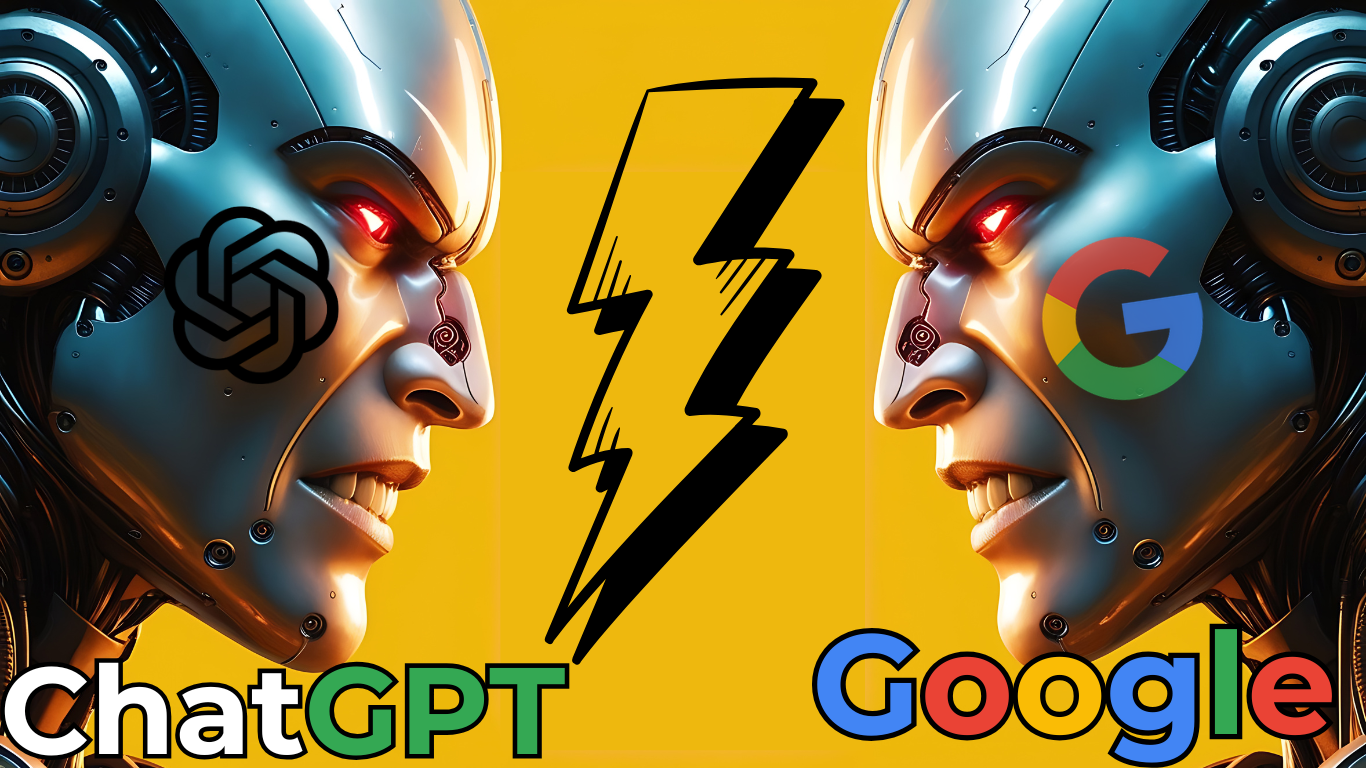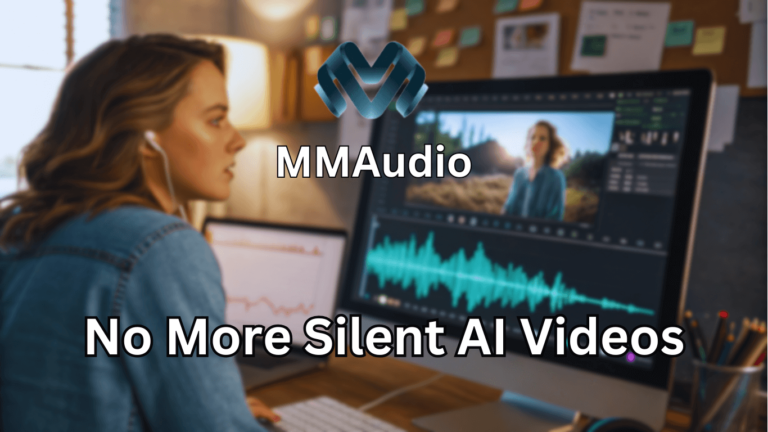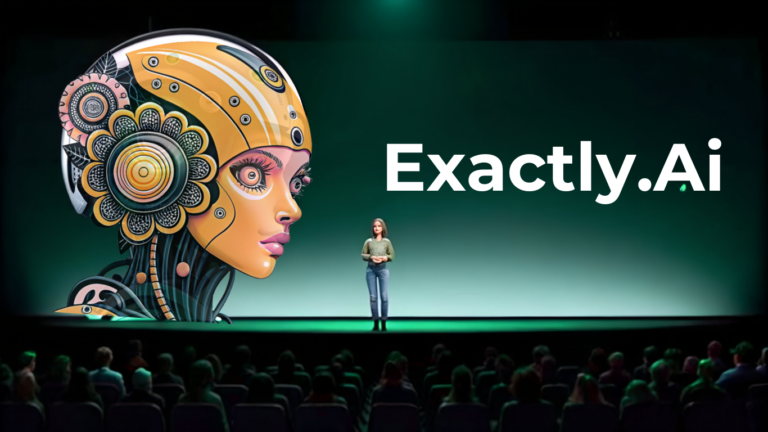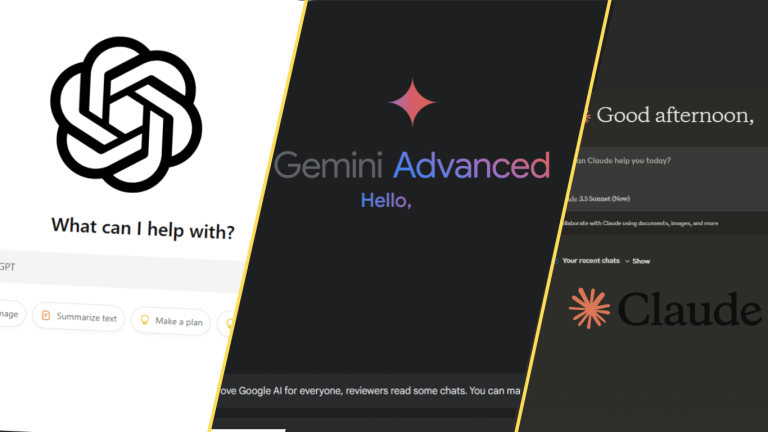With the rapid advancement of AI, search tools are evolving beyond traditional engines like Google. The introduction of AI-powered chatbots such as ChatGPT is shifting how users interact with online information, providing conversational, personalized responses rather than a list of links. If you’re wondering whether to use ChatGPT or Google for your next search, this article breaks down their strengths and the best scenarios for each.
Table of Contents
- Introduction to ChatGPT and Google Search
- Key Differences Between ChatGPT and Google Search
- When to Use ChatGPT
- When to Use Google
- Comparison Table: ChatGPT Search vs. Google
- Tips for Choosing the Right Search Tool
- Conclusion
Introduction to ChatGPT and Google Search
Both ChatGPT and Google Search serve to connect users with information, but they do so in distinctly different ways:
- Google Search is a web-based search engine, primarily ranking websites, articles, and resources based on relevance and authority.
- ChatGPT is an AI-powered chatbot designed for direct, conversational interactions, allowing users to ask questions and receive tailored, synthesized responses.
These two tools are best suited for specific needs. By understanding their strengths and limitations, users can make informed choices to enhance their online searches.
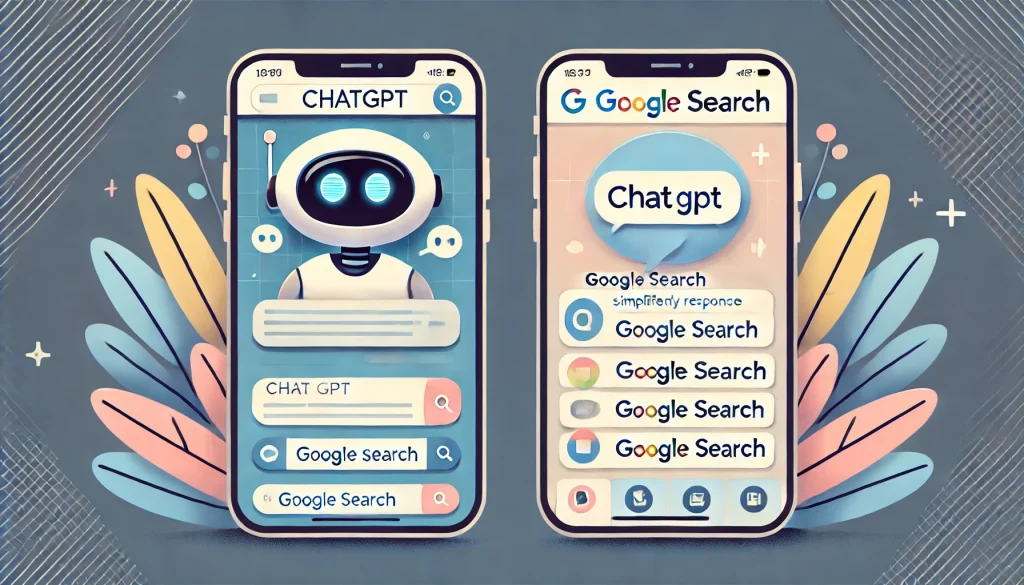
Key Differences Between ChatGPT and Google Search
Both ChatGPT and Google provide valuable information, but their capabilities and strengths differ. Here’s a breakdown of key differences:
1. Response Format
- Google: Offers a list of links, articles, images, and other multimedia sources ranked by relevance.
- ChatGPT: Provides synthesized answers in a conversational format, summarizing information without requiring users to browse multiple sources.
2. Type of Content
- Google: Pulls information from a vast number of sources, offering a wider range of data and perspectives.
- ChatGPT: Based on trained data and knowledge, ChatGPT offers a distilled version, which is helpful for quick answers but may lack depth in highly specialized fields.
3. Real-Time Information
- Google: Continuously updated with the latest data and web content.
- ChatGPT: Limited to information from its training data unless integrated with live internet updates (which may not be universally available).
4. Content Verification and Trustworthiness
- Google: Utilizes its algorithm to rank content based on authority, expertise, and relevance, often displaying high-trust sources.
- ChatGPT: Provides answers based on its data set without a direct mechanism for real-time fact-checking.
5. Interactivity and Personalization
- Google: Non-conversational but offers related searches and suggestions based on prior queries.
- ChatGPT: Enables conversational follow-ups, making it suitable for complex queries requiring back-and-forth clarification.
When to Use ChatGPT
ChatGPT excels in scenarios where users need synthesized, conversational responses without extensive browsing. Here are some cases where ChatGPT may be the better choice:
1. Learning Complex Topics Quickly
- Example: Understanding abstract concepts like quantum computing or blockchain.
- Why: ChatGPT simplifies complex topics by breaking down information in a user-friendly way, ideal for those needing a starting point without diving into extensive academic articles.
2. Generating Content Ideas and Outlines
- Example: Creating blog post outlines, social media content ideas, or even story prompts.
- Why: ChatGPT is trained to generate creative ideas and frameworks, making it perfect for content creators, marketers, or writers.
3. Quick, Conversational Assistance
- Example: Basic advice on personal finance, healthy habits, or productivity tips.
- Why: ChatGPT provides concise answers and is great for users who prefer conversational guidance without extensive detail.
4. Practicing Language and Learning
- Example: Practicing a new language, learning coding syntax, or exploring philosophical ideas.
- Why: ChatGPT offers interactive learning, allowing users to ask follow-up questions and receive clarifications in a human-like manner.
5. Creative Writing and Brainstorming
- Example: Developing story plots, writing poems, or brainstorming character names.
- Why: ChatGPT’s AI capabilities make it a powerful tool for generating creative ideas, brainstorming, and assisting in writing projects.
Limitations of ChatGPT:
- Lack of real-time information: Not ideal for breaking news, current events, or time-sensitive queries.
- Reliance on training data: Might not provide up-to-date or accurate answers for niche, evolving topics.
When to Use Google
Google remains the dominant search engine for its extensive data, real-time results, and trustworthiness. Here’s when Google may be the better choice:
1. Searching for Real-Time Information
- Example: News on current events, sports scores, or livestock prices.
- Why: Google continuously updates its index, making it the go-to source for fresh, time-sensitive information.
2. In-depth research and Fact-Checking
- Examples: Academic research, medical information, and technical documentation.
- Why: Google provides access to authoritative sites, peer-reviewed articles, and a wide range of sources that can be cross-referenced.
3. Local and Personalized Searches
- Example: Finding nearby restaurants, local services, or directions.
- Why: Google’s algorithms are optimized for local search, making it easy to find relevant and nearby results with personalized recommendations.
4. Multimedia Search
- Example: Looking up images, videos, and maps.
- Why: Google offers dedicated search options for images, videos, and other formats, making it ideal for visual content needs.
5. Detailed Product Research
- Example: Comparing product reviews, finding prices, or locating retailers.
- Why: Google links to e-commerce platforms, reviews, and buying guides, which are essential for informed purchasing decisions.
Limitations of Google:
- Overwhelming information: Users may need to sift through multiple links and ads.
- Algorithm-driven content ranking: Some high-ranking content may prioritize SEO tactics over user-centered quality.
Comparison Table: ChatGPT Search vs. Google
| Feature | ChatGPT | |
|---|---|---|
| Response Format | Conversational, single answer | List of links, multimedia options |
| Real-Time Updates | Limited | Continuously updated |
| Content Source | Trained data set | Extensive web index |
| Best For | Summarized, conversational help | In-depth, real-time information |
| Content Verification | Based on training data | Ranks trustworthy sources |
| Personalization | Allows follow-up questions | Localized and personalized search |
| Ideal Usage | Quick explanations, brainstorming | Research, fact-checking, real-time info |
| Visual Content Search | Not available | Images, videos, maps |
Tips for Choosing the Right Search Tool
Here are some tips to help you decide when to use ChatGPT and when to rely on Google:
- Assess Your Query Type: For simple, conversational questions, ChatGPT might save time. For in-depth research, Google’s extensive range is better.
- Consider Content Freshness: If you need real-time information, Google is the best choice. For general knowledge, ChatGPT can provide quicker, focused responses.
- Understand Your Intent: For creative ideas or brainstorming, ChatGPT is a valuable tool. If you need a range of opinions or sources, Google’s wider net is ideal.
- Local Needs: Google is better suited for local searches, such as finding nearby services or events.
- Trustworthy Content: Google ranks content based on trust factors like E-E-A-T (Experience, Expertise, Authoritativeness, Trustworthiness), whereas ChatGPT’s responses are based on its training data.
Conclusion
ChatGPT and Google each have unique strengths that cater to different types of searches. While Google excels in offering real-time, authoritative, and comprehensive data, ChatGPT’s conversational AI provides a more personalized, synthesized approach. By understanding the nature of your queries and applying the tips above, you can make the most of both tools.
Choosing the right search tool is not about competition; rather, it’s about aligning the tool to your needs. Leveraging both ChatGPT and Google effectively can enhance your ability to find and use information with greater ease, accuracy, and satisfaction.

